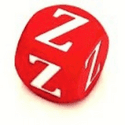1) “You’ll Land Your Dream Role in This New Remote Era”
The lure of remote work makes us believe we can waltz right into our ideal role, but it’s a lot like believing you can sign up for a triathlon and just magically win. While remote positions have certainly opened doors, you still have to practice the fundamentals—updating your résumé, expanding your network, honing interview skills. There’s no “shortcut” or magic formula. It’s about deliberate effort, again and again.
2) “You Can Only Get a Job in an Industry You Have Experience In”
I used to think you had to be a pro cyclist to sign up for a triathlon. Turns out, most triathletes start as total newbies in at least one event. The same is true with careers. I’ve seen people shift from finance to tech, from marketing to data analytics—and thrive. Industries value transferable skills and a willingness to learn. If you’re open-minded and show genuine curiosity, breaking into a new field is far from impossible.
3) “You’ll Get What You Deserve”
This myth assumes that hard work automatically translates into the perfect job, much like believing a perfect training regimen guarantees a podium finish every time. In reality, you must also ask the right questions: Do you know who’s hiring? Are you connecting with the right people? Are your interview skills polished? Hard work is essential, but aligning your strategy is just as crucial to crossing the finish line.
4) “Everyone Else’s Progress Is Your Problem”
I’ve been guilty of measuring my progress by someone else’s timeline—whether it’s triathlon splits or how quickly colleagues snag promotions. It’s as if you’re constantly checking how far along the person in the next lane is. Comparing yourself to others makes you forget your own journey and strengths. It’s good for short-term motivation, but focusing exclusively on other people’s milestones can drain the joy out of your own path.
5) “You Only Have to Talk About Technical Skills”
Sometimes we think showing off a tidy list of technical proficiencies is enough. In triathlon terms, that’s like focusing only on physical endurance and ignoring race-day strategy, nutrition, and mental preparation. People hire people, not skill lists. Show how you collaborate, communicate, and solve problems—those “soft skills” are often what set you apart.
6) “You Should Only Apply to Roles You’re 100% Aligned To”
One of the best pieces of advice I ever got for my first triathlon was to jump into a shorter event I felt half-ready for. It helped me gain experience far sooner than if I’d waited to be “totally prepared.” Similarly, you don’t need to check every single box in a job description. If you’re confident you can learn some of the requirements on the go, don’t be afraid to apply. Growth often happens by taking on challenges that stretch you just beyond your comfort zone.
Just like I realized that being “too old” or “not experienced enough” was never a good excuse to skip triathlon, you might discover that these job-hunting myths are also illusions. No matter how intimidating the job market may seem, believe in your ability to learn, adapt, and eventually find the perfect fit. After all, no triathlete starts out as a master of all three events—they begin with curiosity and a willingness to jump in. Let go of these myths and keep moving forward in your career journey!
